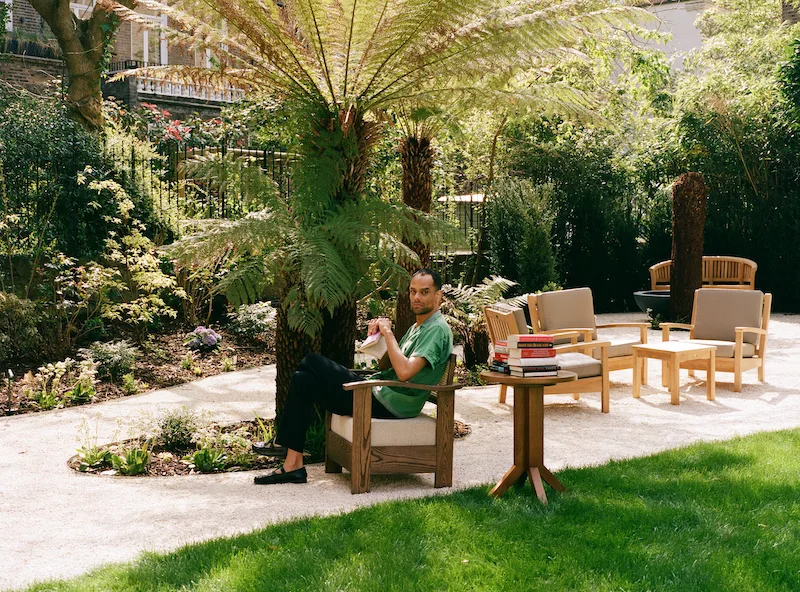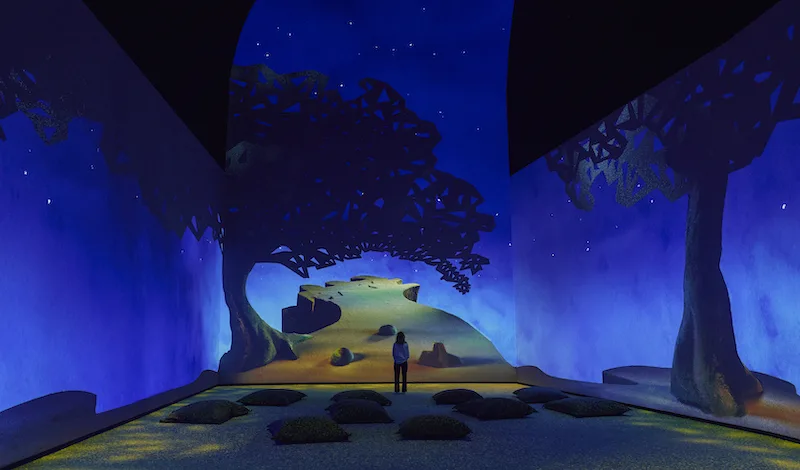When we speak about conservation, it is very common that our minds fly to the majestic beasts roaming the plains of Africa or hiding in tropical jungles but the fact of the matter is that in Europe and specifically in Britain, many of our wildlife is threatened and at risk of extinction.
It is estimated that 60% of British species are in decline and that our nation is 180th on a list of the world’s most impoverished countries to live in when it comes to nature. Derek Gow realised this problem decades ago and decided to devote his life to rewilding the British landscape. To date, his work has been instrumental in the reintroduction in England of the Eurasian beaver, the water vole and the white stork.
Born in Dundee in 1965, he left school when he was 17 and worked in agriculture for five years. Inspired by the writing of author and conservationist Gerald Durrell, his first opportunity to make a difference came in the late 1990s when he was offered to manage a European wildlife park in central Scotland after which he went on to develop two nature centres in England, Nature Quest near Ashdown in the New Forest and the Wildwood Trust near Herne Common in Kent. In both of them he worked as project and design manager.
I was determined that it would, should and could be done…
– Derek Gow.

His job involved creating novel exhibits for a broad range of British wildlife species – Nature Quest being the most sophisticated, mimicking their natural living environments for public display. He also put together captive breeding programmes for a very broad range of nearly unknown creatures and then figure out how to display them. “This involved a considerable body of various research and conservation work through captive breeding for release,” claims Derek, “which I pioneered with water voles.”
Derek is particularly concerned about our waterways – not only canals, but also rivers, streams, ditches and even field drains- all of which have seen a dangerous decline in their numbers of previously abundant species, such as water voles, beavers, otters and bats. The good news is that some of them, like beavers, are easy to re-introduce and are vital for the balance of these ecosystems.
“Once released,” he explains, “unbothered by humans, beavers find their own space, occupy it and utilise it to its maximum extent. By creating dams and felling trees they make a bewildering amount of living space for a whole host of other creatures: Dragonfly larvae use the clusters of woody debris that beavers amass underwater; amphibians use the different pools of different sizes, depths and temperatures they create; the caterpillars of the large copper butterfly feed on the water dock that grows in profusion where willow is coppiced by them; water voles, with their requirement for open sunny complexes of myriad pool environments, need them very much. Beavers are the bringers of life.”
Derek started his study of beavers by going out to Poland to see a captive breeding farm in Masuria in 1994. “Many folk told me that beavers could not be imported or reintroduced,” he shares, ”and quite simply I was determined that it would, should and could be done.” This is how the Derek Gow Consultancy started his gestation and was finally set up in 2003. Derek surrounded himself with a professional team of ecological consultants and, in these 17 years, they have guided the captive reproduction of over 7,000 water voles and assisted client organisations in a range of related projects in the fields of ethical wildlife mitigation, breeding, reintroduction and translocation of protected British mammals and reptiles, focusing specifically on the water vole. “In life you can do anything you want to if you are determined enough,” he adds.
With regard to wildcats and white storks, Derek did the initial feasibility studies that rekindled interest in the restoration of both these species in 2016. “To date, I have captive-bred approximately 28,000 water voles for reintroduction projects from the Cairngorms down to the Channel coast of Kent and from the edge of the Irish sea to the coast of the north,” he explains, “but unfortunately, this is a species still hurtling towards extinction. Wildcats have not been reintroduced yet; we intend to release them in time and will be very excited when releases from elsewhere in Devon or Pine Martens find their way to our land.”

Derek lives with his children, Maysie and Kyle, on a 300-acre farm on the Devon/Cornwall border, which he is in the process of rewilding. So far he has released water voles, polecats and greylag geese, all of which are doing well and as he said earlier, hopes soon to be releasing wildcats, which he says “are believed could help to cull grey squirrels,” an invasive species which has driven out native red squirrels from most of the country.
Among the most impressive species being introduced in Derek’s land are Heck cows: huge, horned cattle thought to be the closest living relative to Stone Age Aurochs, a wild species of bull that once roamed Britain’s countryside. He hopes that these and other animals in his land will start changing and modifying the habitat naturally. “The landscape will eventually be like a foreign savannah, like you see in Africa and India,” he explains. He calls this evolution “New Nature” which he says is a concept that encompasses many things.
“It’s about accepting that much of what we once knew and cherished has irrevocably passed and it is about what we can do to heal in all manner of forms and also involves farming. New Nature is about large areas of land becoming increasingly free willed in destiny, where large semi-domesticated and wild ungulates are enabled to create landscapes which are rich in opportunities for smaller creatures; where purple emperors flit to find sallow of their preference; where colonial bees excavate their burrows in bull exposed soil and burring squadrons of dung beetles pour down from the sky into piles of still-streaming shit.”
We have to look at a different future and a different use of the landscape…
– Derek Gow.

These days farming is haemorrhaging money and as Derek sees it, “the only thing that keeps it going is government subsidies so we have to look at a different future and a different use of the landscape.” Furthermore, he thinks that farming subsidies will decrease once Britain leaves the European Union or good. “Many farmers are now looking at different income streams,” he shares, “and for some rewilding may be part of a solution that will bring tourists or grant aided subsidies to their business operations. Others will find other ways. Rewilding is not a return to the Pleistocene but rather a pragmatic response to recalibrating the landscapes look to ensure that both people and wildlife have a future together. Farming has destroyed so much for so little.”
In fact, Derek is planning to offer visitors a kind of safari experience on his land with the hope that it will help awaken in visitors a genuine interest for rewilding, “The big animals we have introduced – where we have taken down approximately two km of fences – are starting, through their rooting, browsing, grazing, wallowing and dam creation, to reshape the landscape,” explains Derek, “the flat ploughed field of the past, with a uniform carpet of grasses, is passing and a much more exciting mix of other plants are beginning to emerge in response.”
I asked him to elaborate further. He added, “As the plants change, so will the insects and the birds that rely on them, like stonechats, which will hopefully soon come back to breed. So far we have had some nice species like marbled white butterflies return plus reed buntings and grasshopper warblers. However, life is generally so diminished that recovery will be a long time coming.” People will be able next year to go on guided tours through the site to see what’s happening as habitats and other species come back.”

Engaging the younger generations is vital to protect our wildlife. When asked what measures could be taken to institute interest into the young, he doesn’t hesitate in his answer, “We need good TV series which reflect the horror and hope of what is happening. We also need to promote inspiring projects which are honest and true and don’t lose themselves in the fancy nonsense of schmaltz.
Derek went on to say, “Things are very bad out there. The problems are complicated but if we don’t try we will never overcome them. Engaging young people in this process is of critical importance as their thinking is not yet all washed up. They have ideas that are new and fresh. They can and should be determined to succeed; after all the future is theirs and generations like mine are already nearly the past. We need to empower and encourage them to shape what that future will be. Fast.”


















Show Comments +